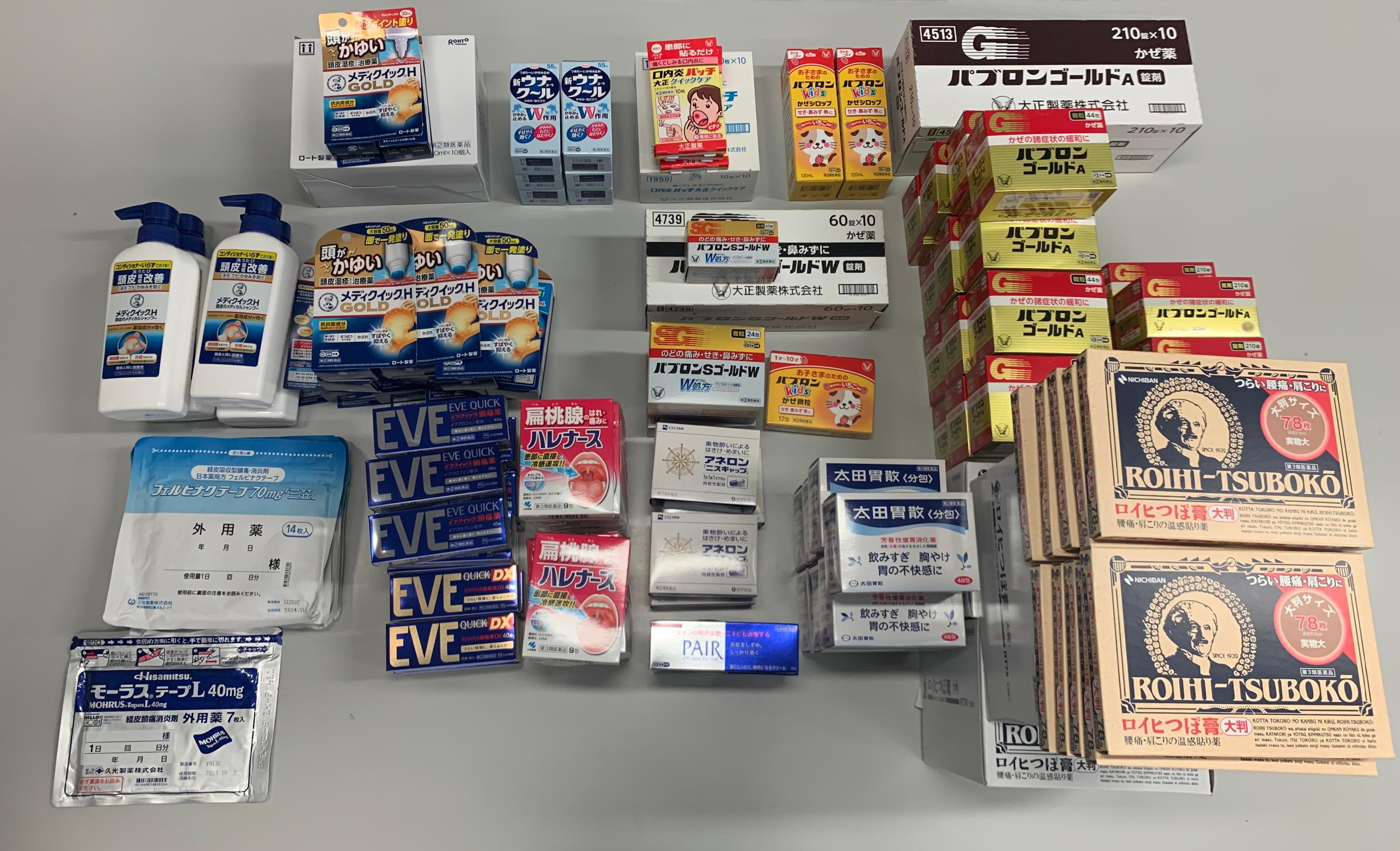The Department of Health (DH) conducted an operation yesterday evening (October 17) against a retail shop in Yau Ma Tei for suspected illegal sale and possession of unregistered pharmaceutical products and Part 1 poisons. A 32-year-old woman was arrested by the Police during the operation.
Upon intelligence, a retail shop in Yau Ma Tei was found selling some unregistered pharmaceutical products and Part 1 poisons, including pain killers and cough and cold medicines.
Preliminary investigation indicated that, among the 20 types of products seized during the enforcement operation, many contained Part 1 poisons under the Pharmacy and Poisons Ordinance (Cap. 138) (the Ordinance) (including ibuprofen, dihydrocodeine, dextromethorphan, prednisolone, triamcinolone acetonide, felbinac, ketoprofen, hyoscine, tranexamic acid and miconazole). All the products did not bear Hong Kong registration numbers for pharmaceutical products and were labelled in foreign languages (including Japanese and English). The DH's investigation is ongoing.
Ibuprofen is a non-steroidal anti-inflammatory pain killer and its side effects include nausea, gastrointestinal discomfort and peptic ulcers. Dihydrocodeine is an opioid analgesic and may cause nausea, vomiting and constipation. Dextromethorphan is a cough suppressant used for the relief of non-productive cough and adverse effects may include dizziness and gastrointestinal disturbances. Prednisolone and triamcinolone acetonide are steroid substances for treating inflammation. Inappropriate use of steroids could cause skin problems and systemic side effects such as moon face, high blood pressure, high blood sugar, adrenal insufficiency and osteoporosis. Felbinac and ketoprofen are non-steroidal anti-inflammatory drugs which could be used topically to relieve pain. Inappropriate use of felbinac and ketoprofen may cause erythema and dermatitis. Hyoscine is used in the management of nausea and vomiting. Common side effects of hyoscine include dry mouth, blurred vision and constipation. Tranexamic acid is used in the treatment and prophylaxis of haemorrhage and can cause gastrointestinal disturbances, and inappropriate use may cause cerebral thrombosis. Miconazole is used for the treatment of fungal infections with side effects including local irritation and sensitivity reactions. Products containing the above ingredients should only be supplied by a pharmacy under the supervision of a registered pharmacist. Certain products could only be supplied upon a doctor's prescription.
According to the Ordinance, all pharmaceutical products must be registered with the Pharmacy and Poisons Board of Hong Kong before they can be legally sold in the market. Illegal sale or possession of Part 1 poisons and unregistered pharmaceutical products is a criminal offence. The maximum penalty for each offence is a fine of $100,000 and two years' imprisonment.
The DH strongly urges members of the public not to buy or use unregistered pharmaceutical products as their safety, efficacy and quality are not guaranteed. All registered pharmaceutical products should carry a Hong Kong registration number on the package in the format of "HK-XXXXX".
Members of the public should not self-medicate without advice from healthcare professionals. People who have purchased and used the above products should stop using them and consult healthcare professionals if in doubt or feeling unwell after use. They may submit the products to the Drug Office of the DH at Room 1801, Wu Chung House, 213 Queen's Road East, Wan Chai, during office hours for disposal.
Reposted from HKSAR Government webpage:
https://www.info.gov.hk/gia/general/202310/18/P2023101800583.htm



